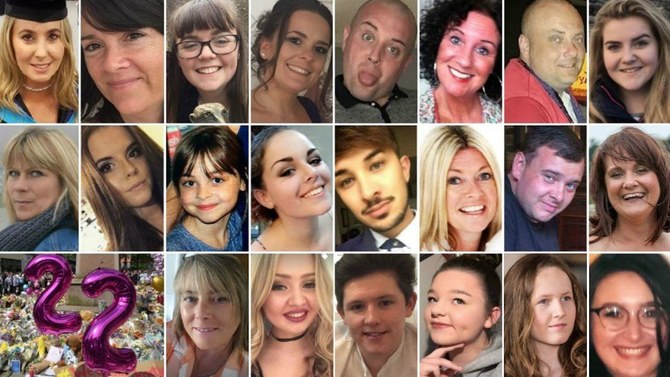LONDON: A request for immunity in exchange for cooperation by the brother of the man who committed a deadly bombing in Manchester has been denied.
Ismail Abedi, 27, is the brother of Salman Abedi, who killed himself and 22 others — many of them children — when he detonated a suicide bomb inside a packed concert venue exit following an Ariana Grande show in 2017.
Ismail Abedi has refused to answer any questions posed by an inquiry into the events of that day, and claimed a general privilege against self-incrimination.
His legal team made an immunity application to the inquiry’s chairman, John Saunders.
Saunders, however, rejected the application, and said any failure to prosecute could be seen as “a considerable affront to justice.”
Ismail and Salman’s other brother, Hashem Abedi, was part of the conspiracy to commit the bombing and was jailed in 2020 for a minimum of 55 years.
The immunity application made by Ismail Abedi, who was arrested on suspicion of terrorism the morning after the bombing, was opposed by lawyers representing the bereaved families.
He has refused to answer the 40 questions posed to him in writing by the inquiry, or agree to appear in person as a witness.
Some witnesses in other public inquiries have received assurances that their evidence will not be used against them in a criminal prosecution.
In his ruling, Saunders said allowing immunity to convince Ismail Abedi to co-operate did not outweigh the potential effects on the administration of justice.
“If as a result of an undertaking from the Attorney General, the applicant was to disclose material to the inquiry which provided evidence to justify charges of murder or conspiracy to murder, then he could avoid trial for 22 murders and causing serious injury to many more,” he said.
“While less serious, if he were to disclose material ... which evidenced a failure by him to disclose information to the authorities which could have prevented the bombing happening, a failure to prosecute would be considered by many to be a considerable affront to justice.”
Ismail Abedi is expected to be served with a legal notice soon which will “require” his attendance in person at the inquiry. He will be entitled not to answer questions on the grounds of self-incrimination, but he will have to justify why and on what grounds he is refusing to answer.














